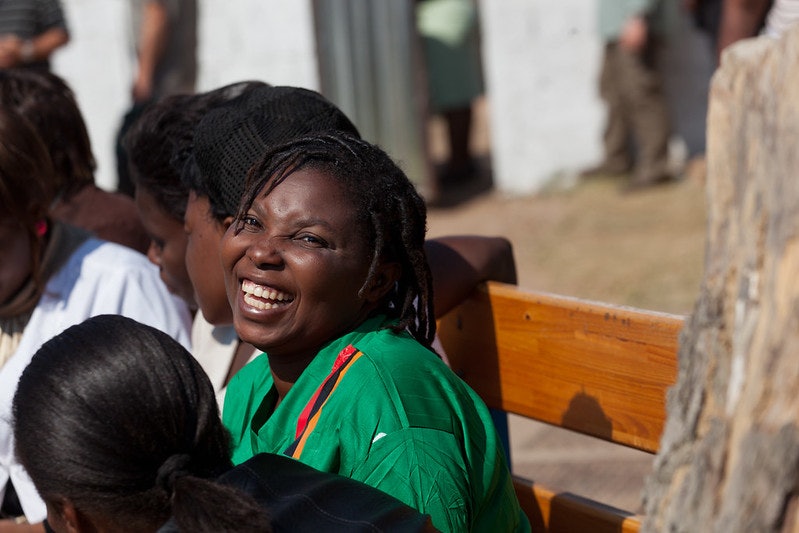More than half the world’s population is set to go to the polls in 2024, making it the largest election year in history. Eighteen of these national elections will be in Africa.
A third of the countries and approximately 330 million people in Africa will select a new government this year, directly affecting the global economy and U.S. foreign policy. Africa is home to 13 of the 25 fastest-growing economies in the world. The continent is home to strategic materials integral to our daily lives like cobalt, copper, and lithium – resources that are key to 21st century industries and development.
The Department of Defense has recognized Africa’s strategic importance, as the continent holds vital military communications points and serves as a crossroads between the East and West. U.S. investment and partnership alongside African leaders, practitioners, and advocates is critical for building a more democratic Africa. As Africa sits at the precipice of growth and opportunity, this engagement has become even more important.
The good news is that the U.S. has a history of successful policies and partnerships in Africa that we can build on – like the President’s Emergency Plan for AIDS Relief, or PEPFAR. Congress must reauthorize this lifesaving program to ensure that Africa continues to thrive.
Over 20 years ago, Africa faced complete collapse as the HIV/AIDS epidemic decimated entire communities, targeting mostly working-age adults. In 2003, PEPFAR changed the trajectory of the pandemic, giving countries the funding and tools necessary to prevent, detect, and treat the disease. Today, PEPFAR is one of the most successful foreign investment programs since the Marshall Plan, saving over 25 million lives and allowing 5.5 million babies to be born HIV-free. It demonstrates the impact that compassionate U.S. global health engagement can have.
Many of the babies born during PEPFAR’s inception are now young adults who have the power to vote this year to determine the future of democracy, security, and prosperity in their countries and across the region. The median age on the continent is 19, and it’s expected that by 2075 one-third of those entering the global workforce will be African.
China recognized the importance of the continent decades ago, implementing several economic and development programs like the Belt and Road Initiative and Health Silk Road. Economically, China has strengthened trade relationships across the continent for years. China dominates the global mineral supply chain, accounting for 85% of mineral processing capacity worldwide. Many in China now refer to Africa as their “second continent.”
But PEPFAR stands in stark contrast to Chinese lending structures and health programming that lack accountability, transparency, and long-term sustainability.
PEPFAR collects granular, disaggregated data down to the site and community level and makes it available to governments and implementing partners to guide decision-making and put resources where they are needed most. Transparent, readily available data encourages accountability in government spending, making it difficult for those in power to serve their own interests.
Over half of PEPFAR’s country-level funding goes to local organizations including faith-based groups and civil society initiatives. Local organizations and community groups are also invited to country and regional operational planning sessions to determine their response to the epidemic, alongside practitioners and governments. As a direct representation of the people, these meetings create a forum for citizens to express their perspectives, share their needs, and defend their rights.
PEPFAR is built on democratic values – transparency, accountability, and data-driven decision-making – and is much more than a global health program. It emphasizes sustainable, strategic investments that support country ownership and data-driven results. These values have allowed the United States to maintain its status as a preferred partner on the continent. Public opinion of the United States in PEPFAR-supported countries is higher than the global average, according to the Bipartisan Policy Center.
And that’s having a remarkable impact on the continent itself.
In 2023, Freedom House reported a slight improvement in freedom in Africa as several countries successfully held free and fair elections. That’s noteworthy progress, given that Freedom House also estimates that nearly 80% of the global population lives in a country that isn’t free.
Twenty years of U.S. collaboration and partnership have contributed to Africa’s growing demand for democracy and freedom. Slowing down now not only threatens to cause backsliding in the fight against HIV/AIDS but also does a disservice to Africa’s potential.
Supporting democracy abroad directly benefits Americans at home. Free societies act in opposition to authoritarianism, combat extremism, and promote economic growth. We must continue to help Africa address challenges related to transparency, accountability, and equality.
As Africans head to the polls in 2024, they are thinking about the future of their countries and the vast opportunity at their doorstep. Congress created PEPFAR and it has become a shining beacon for democratic governance. Now is not the time to back away.






























